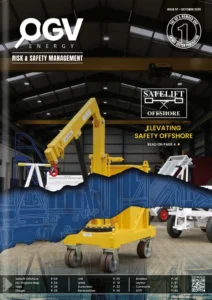Retaining and Attracting Talent – Flexibility is Key
We know what the problem is, but how good will we prove to be at fixing it?
The Skills Shortage
The shortage of key skills necessary to sustain and decommission the oil & gas industry is an issue focused in the minds of many business leaders. Worldwide, it is projected that the greatest shortages will emerge in the engineering discipline and there will be a significant loss of problem solving and leadership capabilities. As the industry seeks to fulfil MER and transition into the late-life phase of the North Sea basin, it knows that it can ill-afford to lose its workforce to other sectors or find that the youth talent pool has dried up.
Detailed analysis of the reasons behind this shortage have identified a range of factors, including better career prospects elsewhere and the impact of a reduction in graduate recruitment schemes during the 2008 world financial downturn. Additionally, a perception of instability due to fluctuations in global oil and gas prices and associations with environmental damage/climate change have diminished the appeal of the industry, particularly for those just starting their professional life. The latest Global Energy Talent Index (“GETI”) Report this year indicated that of the respondents who were employed in oil & gas, 73% would consider switching to an entirely new employment sector, with the most popular motivation behind this being cited as better career progression.
However, with an estimated £15 billion expected to be incurred in the decommissioning of the North Sea, it is clear that long-term career opportunities remain plentiful. Some encouragement can be generated from the fact that 81% of the respondents aged 18-24 in last year’s GETI Report said that if they were starting their careers afresh, they would pursue a career in the industry.
What can be done? Fit the Business Around the People, not the People Around the Business
The ability to adapt to shifting working patterns will be a key criterion in the attempt to recruit and retain individuals who do not fit the traditional office-based employee mould. Indeed, last year’s GETI Report indicated that approximately 30% of respondents believed that a more flexible working culture could attract more talent to the industry. Flexible working has provided an opportunity for many (including this author) to continue to pursue careers in oil & gas from de-centralised locations. Notwithstanding the direct benefit of staff retention, the spread of the workforce across different population centres provides opportunities for their employers to expand into new markets, diversify their business streams and reach out to potential new employees who otherwise did not view a career in oil & gas as realistically in keeping with the needs of their personal lives. The embracing of remote working on a permanent basis can also reduce business costs (not least office space), reduce wasted time (commuting) and mitigate risk associated with travel. As the industry battles to reduce its carbon footprint, driving ways to positively affect the industry’s environmental impact, including emissions reduction in any form, is a chance to show development and transition at a time when the industry needs it most, in order to attract and retain the next generation of talent.
Published: 09-03-2020














